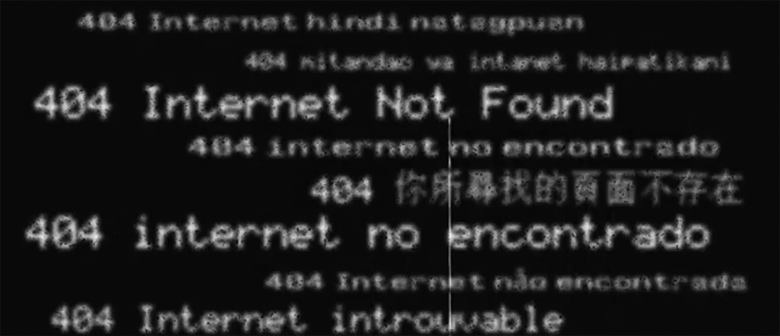The European Union has legalized blocking sites for "consumer protection"

On November 14, 2017, the European Parliament approved the regulation of state cooperation in the field of consumer protection Consumer Protection Cooperation (pdf) . This document expands the rationale for blocking websites in the EU.
The representative of the Pirate Party in the European Parliament Julia Reda (Julia Reda) explains what the main problem of the new document. The fact is that it allows national consumer protection organizations to order any indefinite third party to block access to websites without a court decision .
')
Organizations that used to look for sour milk and expired meat in stores can now block any websites without a trial.
For the "third party" primarily refer to Internet service providers. So, to fulfill the requirement of this legislation, European Internet providers will have to create an infrastructure to block websites . According to Julia Reda, the creation of such infrastructure is dangerous in itself, because in the future it can theoretically be used to block websites for any reason, including political censorship. And the process has already begun: just a few weeks ago , websites dedicated to the independence of Catalonia were blocked . Large Internet providers received a court order demanding to block access to these sites, and the police searched the domain .CAT registrar. It would seem that such chaos is possible only in non-democratic third world countries. But it happens in the European Union.
In the case of blocking .CAT sites, there was a real court decision that required the domain registrar to "block all sites that contain information about the referendum." Human rights activists expressed outrage about this, because assessing the contents of websites is not the responsibility and scope of the registrar. In fact, the only way for a registrar to execute a court decision was to divide all .CAT domains just in case. What he naturally did not do.
Nevertheless, this story shows that blocking websites and infringing on the principle of free exchange of information is becoming a normal phenomenon even in the European Union. The international professional organization of the Internet Society (Internet Society) made a statement about this. She draws the attention of legislators that network blocking measures are usually ineffective and tend to cause indirect damage, including through the erroneous blocking of law-abiding sites and the infringement of freedom of speech. In connection with the current situation, the Internet Society together with more than 130 human rights organizations launched a public campaign Keep the Internet On . Their website states that in 2016, 50 Internet outages were recorded in different countries of the world. Turning off the Internet is the first sign that human rights can be violated in a country.
In the case of the Catalan domains, political censorship was carried out in accordance with a legal court decision. But now, after the adoption of the rules of Consumer Protection Cooperation , censorship can be carried out without any court decision. Such actions to block unwanted resources can be quickly carried out only if the appropriate infrastructure has been created for blocking and an out-of-court procedure is provided for.
When the parliament discussed the regulations of Consumer Protection Cooperation in March 2017, Julia Reda proposed changing the procedure - and demanding the removal of illegal content from the violating websites, and not immediate blocking. And the blocking itself must take place with the observance of fundamental rights, that is, with prior judicial authorization. Unfortunately, these proposals were not taken into account during the negotiation process. In addition, in the course of the discussion, other wordings on consumer protection were mitigated: 1) compensation for damage was made voluntary and not mandatory; 2) abolished the seizure of income illegally obtained as a result of violation of consumer rights.
Julia tried to make the necessary amendments on the last day before the adoption of the document ( video ), but members of parliament, unfortunately, did not support it. Therefore, parliamentarians from the Green Party and the European Free Alliance, as well as Julius Reda, voted against the document.
The new document has the status of regulation (regulation), but not directives, that is, it is mandatory for all members of the European Union to implement and does not require additional approval by the parliament of each country.
Source: https://habr.com/ru/post/356232/
All Articles